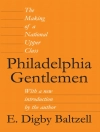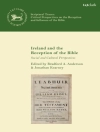How does a contemporary society restore to its public memory a momentous event like its own participation in transatlantic slavery? What are the stakes of once more restoring the slave trade to public memory? What can be learned from this history? Elizabeth Kowaleski Wallace explores these questions in her study of depictions and remembrances of British involvement in the slave trade. Skillfully incorporating a range of material, Wallace discusses and analyzes how museum exhibits, novels, television shows, movies, and a play created and produced in Britain from 1990 to 2000 grappled with the subject of slavery.
Topics discussed include a walking tour in the former slave-trading port of Bristol; novels by Caryl Phillips and Barry Unsworth; a television adaptation of Jane Austen’s Mansfield Park; and a revival of Aphra Behn’s Oroonoko for the Royal Shakespeare Company. In each case, Wallace reveals how these works and performances illuminate and obscure the history of the slave trade and its legacy. While Wallace focuses on Britain, her work also speaks to questions of how the United States and other nations remember inglorious chapters from their past.
Inhaltsverzeichnis
List of Illustrations
Preface
Introduction: Millennial Reckonings
1. Commemorating the Transatlantic Slave Trade in Liverpool and Bristol
2. Fictionalizing Slavery in the United Kingdom, 1990–2000
3. Seeing Slavery and the Slave Trade
4. Transnationalism and Performance in ‚Biyi Bandele’s Oroonoko
Conclusion
Notes
Index
Über den Autor
Elizabeth Kowaleski Wallace is associate professor of English at Boston College. She is the author of
Consuming Subjects: Women, Shopping, and Business in the Eighteenth Century and
Their Fathers‘ Daughters: Hannah More, Maria Edgeworth, and Patriarchal Complicity.












